The length of a Jewish wedding can vary depending on various factors, traditions, and religious observance levels. Understanding the traditional structure of a Jewish wedding can provide insights into its duration. A traditional Jewish wedding typically consists of three main parts: the ceremony, yichud (a private moment for the couple), and the reception.
The ceremony itself can range from 20 minutes to an hour, depending on the customs and rituals observed. Following the ceremony, the couple may have a yichud, a short period of seclusion, lasting around 15 minutes. Finally, the reception is where guests celebrate and can last for several hours.
Several factors can affect the length of a Jewish wedding. The level of religious observance can influence the number of rituals and customs performed, thus impacting the overall duration. The number of guests and the logistics involved, such as transportation arrangements, can also contribute to the wedding's length.
Different denominations within Judaism can have specific variances in wedding length. Orthodox and Conservative weddings tend to be more traditional and have longer ceremonies compared to Reform and Reconstructionist weddings. However, modern Jewish weddings may adopt a more flexible approach, allowing for customization and shorter durations.
Planning the duration of a Jewish wedding requires careful consideration. Couples can work with their officiant and wedding planner to ensure a well-organized flow of events. By understanding the factors influencing the length and incorporating personal preferences, couples can create a memorable and meaningful wedding experience within their desired timeframe.
Key takeaways:
- Traditional Jewish weddings vary in length: The length of a Jewish wedding can range from a few hours to multiple days, depending on factors such as the religious observance level, customs and traditions, number of guests, and logistical considerations.
- Orthodox and conservative weddings tend to be longer: These weddings typically include a more extensive ceremony, multiple rituals, and additional customs, resulting in a longer overall duration.
- Modern Jewish weddings can be shorter: Some couples choose to streamline their wedding ceremonies and remove certain traditional elements, resulting in shorter wedding timelines for a more modern approach.
Traditional Length of a Jewish Wedding
When it comes to traditional Jewish weddings, understanding the length and structure is key. In this section, we'll uncover the fascinating aspects of a Jewish wedding. From the sacred ceremony to the intimate Yichud and joyous reception, each element holds its own significance. Get ready to dive into the rich traditions and time-honored customs that make a Jewish wedding a truly remarkable celebration.
Ceremony
The ceremony is a significant component of a Jewish wedding, symbolizing the couple's commitment and the start of their married life together. It typically takes place under a chuppah, a canopy representing the new home the couple will build. The ceremony consists of various rituals and blessings, each holding deep cultural and spiritual meaning.
| Rituals | Description |
|---|
| Kiddushin | The betrothal ceremony where the bride and groom exchange rings or other symbolic items. |
| Sheva Brachot | The Seven Blessings recited to celebrate the couple's union and invoke happiness and joy. |
| Breaking of the Glass | The groom breaks a glass wrapped in cloth, symbolizing both the destruction of the Temple and the fragility of human relationships. |
| Yichud (Seclusion) | Immediately following the ceremony, the couple spends a brief moment alone to reflect on their new union. |
Fun Fact: In Jewish tradition, the breaking of the glass is met with exuberant shouts of "Mazel Tov!" as it symbolizes the end of the ceremony and the beginning of the celebration.
Yichud
Yichud is a traditional Jewish practice that takes place immediately after the wedding ceremony. It is a private moment for the newly married couple to spend some time alone together. Yichud, which means "seclusion" in Hebrew, allows the couple to reflect on their new union and enjoy their first moments as husband and wife.
During Yichud, the couple is typically escorted to a private room or area where they can have some privacy. This intimate time together is seen as a sacred and symbolic moment, signifying the beginning of their lifelong commitment to each other.
Yichud is an important part of Jewish weddings, as it allows the couple to cultivate their bond and create a strong foundation for their marriage. It also provides a moment of tranquility amidst the busy and joyous celebration.
To ensure a smooth transition into Yichud, it is helpful to plan ahead and designate a quiet and comfortable space for the couple to retreat to. This can be a separate room in the venue or a designated area outdoors. It is also important to communicate with the wedding guests and let them know that the couple will be in seclusion for a short period of time.
Yichud is a cherished tradition in Jewish weddings that allows the couple to have a moment of privacy and reflection before joining their guests for the reception. It is a special time for the couple to connect and celebrate the start of their married life together.
Suggestions for a successful Yichud experience: - Choose a quiet and comfortable space for Yichud - Communicate with the wedding guests about the temporary absence of the couple - Ensure that the newly married couple has some refreshments available during Yichud - Allow enough time for the couple to fully enjoy and appreciate this private moment together.
Reception
The reception is a significant part of a Jewish wedding, where the couple celebrates their union with family and friends. During this lively event, guests enjoy a festive meal, dancing, and various traditions that add joy and meaning to the occasion. The reception typically takes place after the wedding ceremony and can last for several hours. While the specific duration may vary depending on factors such as the number of guests, venue logistics, and the couple's preferences, it generally lasts between three to five hours.
At the reception, guests are treated to delicious food and drinks, often including traditional Jewish dishes like challah bread, gefilte fish, and kosher wine. Live music or a DJ keeps the energy high, encouraging guests to participate in traditional dances like the Hora. The couple also shares special moments, such as the first dance and speeches from family members and close friends.
Throughout history, Jewish wedding receptions have been a time for celebration and bringing people together. They serve as a joyous conclusion to the wedding ceremony, creating lasting memories for the couple and their loved ones.
Factors Affecting the Length of a Jewish Wedding
Discover the key factors that influence the duration of a Jewish wedding. From the level of religious observance to the customs and traditions involved, we will delve into what makes each ceremony unique. With an exploration of the number of guests and the logistical aspects of the venue, we'll uncover the various elements that contribute to the length of these joyous celebrations. So, get ready to unravel the secrets behind the duration of a Jewish wedding!
Religious Observance Level
The level of religious observance is a significant factor in determining the length of a Jewish wedding ceremony. Orthodox and Conservative weddings typically have longer ceremonies because of their strict adherence to religious customs and traditions. These ceremonies can range from one to two hours, with careful attention to every detail, including the recitation of prayers, the reading of the ketubah (marriage contract), and the seven blessings.
In contrast, Reform and Reconstructionist weddings may have shorter ceremonies as they incorporate modern elements and allow more flexibility in their rituals. These ceremonies often focus on the couple, their love story, and their commitment to each other. Consequently, the length can vary, lasting anywhere from 30 minutes to one hour.
When planning the duration of their Jewish wedding, it is important for couples to consider their religious beliefs and preferences. Discussing their expectations with their rabbi or officiant can help strike a balance between upholding their religious observance and ensuring a meaningful and enjoyable celebration for themselves and their guests.
Customs and Traditions
Customs and traditions play a significant role in shaping the length of a Jewish wedding ceremony. Understanding these customs can help in planning and managing the duration of the event:
- Ketubah: The signing of the ketubah, the traditional Jewish marriage contract, is an essential custom. It typically takes place before the ceremony and adds approximately 10-15 minutes to the overall wedding duration.
- Chuppah: The chuppah, symbolizing the home the couple will create together, is another important ritual. The time it takes to set up and dismantle the chuppah can affect the overall length of the ceremony.
- Seven Blessings: The recitation of the Sheva Brachot, or Seven Blessings, is a central part of the Jewish wedding ceremony. The number of blessings and the time taken to recite them can vary, impacting the length of the ceremony.
- Breaking of the Glass: The ceremony concludes with the groom breaking a glass underfoot. This custom signifies the fragility of life and joy experienced. It is a memorable moment that adds a small amount of time to the ceremony.
By considering and incorporating these customs and traditions, couples can balance meaningful rituals with their desired wedding duration.
Number of Guests
When considering the number of guests at a Jewish wedding, it is important to understand that it can significantly impact the duration of the event. The larger the guest list, the longer the wedding is likely to be, as more time is needed for greetings, socializing, and the overall flow of the celebration.
Here is a table showcasing the possible impact of the number of guests on the length of a Jewish wedding:
| Number of Guests | Estimated Duration |
|---|
| Small (50-100) | 3-4 hours |
| Medium (100-200) | 4-5 hours |
| Large (200+) | 5+ hours |
It is crucial to consider the venue capacity and logistics when determining the number of guests you can accommodate. Keep in mind that a larger guest count may require additional time for formalities like speeches, toasts, and performances.
To ensure a smooth and enjoyable wedding experience for your guests, consider providing ample seating, proper food and beverage arrangements, and entertainment options. Communicating any schedule changes in advance can also help manage expectations and keep the event running smoothly.
Venue and Logistics
When planning the duration of a Jewish wedding, incorporating venue and logistics is crucial. Here are some factors to consider:
- Location: The distance between the ceremony and reception venues can impact the overall length. Choosing a venue close to each other can save time and reduce stress.
- Transportation: If the ceremony and reception are at different locations, providing transportation for guests can help ensure a smooth transition and minimize delays.
- Schedule: Create a detailed timeline with specific time slots for each event, such as the ceremony, cocktail hour, dinner, and dancing. This will help keep everything organized and on track.
- Vendor coordination: Effective communication with vendors is essential. Make sure they have clear instructions regarding setup and breakdown times to keep everything running smoothly.
- Layout: Consider the flow of the venue and plan the different events accordingly. Having separate spaces for the ceremony, reception, and dancing can help avoid unnecessary delays and congestion.
By considering these venue and logistics factors, you can ensure that your Jewish wedding stays on schedule and allows for a seamless and enjoyable experience for all involved.
Variances in Jewish Wedding Length
When it comes to Jewish weddings, the length can vary depending on various factors. In this section, we will explore the variances in Jewish wedding length, diving into different types of ceremonies and traditions. We'll take a closer look at the Orthodox and Conservative weddings, as well as the Reform and Reconstructionist weddings. We'll touch upon the modern Jewish weddings that blend traditional customs with contemporary elements. So, buckle up and get ready to discover the fascinating differences in Jewish wedding lengths!
Orthodox and Conservative Weddings
- Orthodox and Conservative weddings in the Jewish tradition tend to have longer durations compared to other types of Jewish weddings.
- Both Orthodox and Conservative weddings have a number of religious rituals and customs that contribute to their length. These may include a traditional Jewish ceremony, the signing of the Ketubah (marriage contract), and the recitation of the Sheva Brachot (Seven Blessings).
- Conservative weddings also incorporate many traditional elements, but may offer more flexibility in terms of certain customs and practices.
- The length of Orthodox and Conservative weddings can vary depending on factors such as the level of religious observance, the complexity of the customs and traditions incorporated, the number of guests attending, and the logistical aspects of the venue.
Pro-tip: If you are planning an Orthodox or Conservative wedding, make sure to allocate sufficient time for each ritual and consider the overall flow of the ceremony and reception to ensure a meaningful and enjoyable experience for you and your guests. For more information on how long a Jewish wedding typically lasts, check out this reputable source.
Reform and Reconstructionist Weddings
Reform and Reconstructionist Weddings
Reform and Reconstructionist weddings, being part of the broader spectrum of Jewish weddings, often showcase variations in their length and structure when compared to Orthodox and Conservative ceremonies. These branches of Judaism emphasize individuality, personal beliefs, and flexibility to a greater extent. In particular, Reform weddings tend to include more contemporary elements and diverse practices, empowering couples to tailor their ceremonies according to their own values and identities. Similarly, Reconstructionist weddings also prioritize personal expression and frequently incorporate innovative rituals and inclusive language.
The length of Reform and Reconstructionist weddings can vary depending on factors such as the couple's preferences, the number of rituals involved, and the level of religious observance. While some ceremonies may focus on core traditions like exchanging vows and rings, others may extend the duration by incorporating additional elements like personal reflections, music, and creative readings.
By embracing more inclusive practices and allowing for personalized touches, Reform and Reconstructionist weddings offer couples the opportunity to create meaningful and genuine ceremonies that truly reflect their unique love stories and values.
Modern Jewish Weddings
Modern Jewish weddings have transformed and adapted to incorporate contemporary elements while still upholding traditional customs. Here are some pivotal aspects that characterize modern Jewish weddings:
- Personalization: Modern Jewish weddings offer couples the opportunity to infuse their ceremonies and receptions with their distinct style and values. This may encompass non-traditional rituals, alternative music selections, or innovative decorations.
- Gender equality: In modern Jewish weddings, a strong emphasis is placed on achieving gender equality, with both partners actively participating in the ceremony. This may entail the couple jointly reciting the vows or sharing in the symbolic act of breaking the glass.
- Inclusion and diversity: Modern Jewish weddings wholeheartedly embrace diversity, cordially welcoming interfaith couples, same-sex marriages, and couples from different Jewish denominations. It is customary to witness a harmonious blend of traditions, rituals, and cultural elements from both partners.
- Focus on meaningful moments: One of the main priorities in modern Jewish weddings is the creation of profoundly meaningful moments for the couple and their beloved attendees. This may involve personalized vows, heartfelt speeches, or symbolic gestures that symbolize the couple's values and shared journey.
- Incorporating technology: Modern Jewish weddings often incorporate technology into the celebration, such as live streaming the ceremony for absent guests or designing custom wedding websites to disseminate essential information to attendees.
Tips for Planning the Duration of a Jewish Wedding
Tips for Planning the Duration of a Jewish Wedding
- Plan the ceremony length: The duration of a Jewish wedding ceremony can vary depending on the traditions and customs followed. Consult with your rabbi or wedding officiant to understand the typical length of the ceremony and plan the schedule accordingly.
- Create a detailed timeline: Follow these tips for planning the duration of a Jewish wedding. Outline the different events and activities throughout the day, including the ceremony, cocktail hour, dinner, and dancing. Allocate an appropriate amount of time for each event to avoid rushing or long lulls.
- Consider the venue and logistics: When planning the duration of a Jewish wedding, it is essential to select a venue that can accommodate your desired timeline without any time restrictions. Check the availability of necessary facilities like restrooms, parking, and changing rooms to ensure a smooth flow of events.
- Communicate with vendors: To ensure a well-planned and timed Jewish wedding, it is crucial to discuss the estimated timeline with your vendors, such as photographers, DJs, and caterers. Ensure they are aware of the schedule so they can plan their tasks accordingly.
- Be flexible: Despite careful planning, unexpected delays or changes can occur during a Jewish wedding. Stay flexible and have a backup plan in case of any unforeseen circumstances to ensure a smooth and enjoyable celebration.
Some Facts About How Long is a Jewish Wedding:
- ✅ A traditional Jewish wedding ceremony can last anywhere from 30 minutes to 2 hours. (Source: Jewish Weddings Guide)
- ✅ The length of a Jewish wedding can vary depending on factors such as the customs followed, the number of guests, and the desired level of religious observance. (Source: The Knot)
- ✅ Some Jewish wedding ceremonies are designed to be shorter and more streamlined, lasting around 30-45 minutes, while others may include additional rituals and can take up to 2 hours. (Source: Jewish Virtual Library)
- ✅ The duration of the wedding ceremony itself is typically shorter compared to the overall event, which may include pre-wedding rituals, a reception, and other celebrations that can extend over several hours. (Source: InterfaithFamily)
- ✅ The length of a Jewish wedding is often influenced by the desired level of participation and involvement of family, friends, and the community, as well as the choice of musical performances, speeches, and other elements. (Source: Jewish Federation of Greater Philadelphia)
Frequently Asked Questions
How long is a Jewish wedding?
A Jewish wedding typically lasts for about 3 to 6 hours, depending on the specific customs and traditions followed by the couple and their families.
What is the significance of covering the bride's face with a veil in a Jewish wedding?
The tradition of covering the bride's face with a veil during the bedeken ceremony is done to recall the story of Jacob, who was tricked into marrying Leah instead of Rachel. This tradition symbolizes the groom's commitment to marrying his intended bride.
What is the meaning of the chuppah in a Jewish wedding?
The chuppah, a wedding canopy, represents the new home that the couple will build together. In Ashkenazi ceremonies, the chuppah consists of a cloth canopy held up by four beams, while some Sephardic weddings use the groom's tallit (prayer shawl) as the chuppah.
What is the role of a ketubah in a Jewish wedding?
A ketubah is a written agreement that outlines the groom's obligations to the bride, including providing food, clothing, and marital relations. It is a legally binding contract and is often displayed in the couple's home. During the wedding ceremony, the ketubah is traditionally read aloud.
What are some pre-wedding traditions in Jewish weddings?
Pre-wedding traditions in Jewish weddings include the aufruf, where the groom or couple is called to the Torah to recite a blessing. Some Jewish communities also practice fasting before the wedding, where the couple fasts from sundown the night before until the first glass of wine at the ceremony.
How do modern couples incorporate Jewish wedding traditions?
Modern couples often incorporate Jewish wedding traditions by personalizing them to reflect their own beliefs and preferences. They may choose to follow certain traditions while adapting or omitting others. Rabbi Linda Portnoy Goldberg explains that Jewish wedding traditions can vary among different subcultures and religious movements within Judaism.
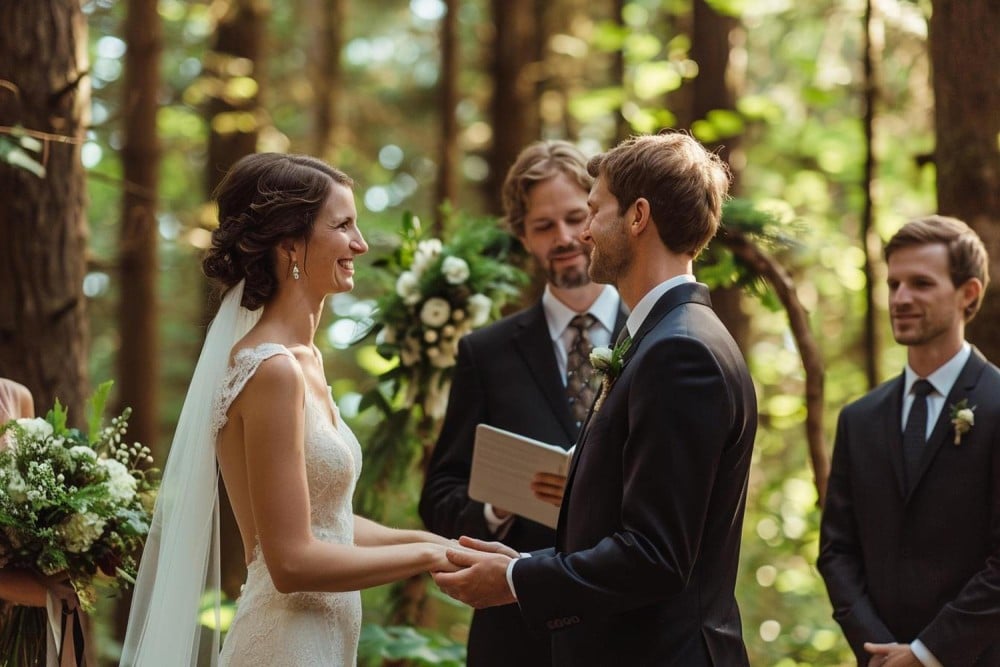 How to become a wedding officiant in tennessee ?Read more
How to become a wedding officiant in tennessee ?Read more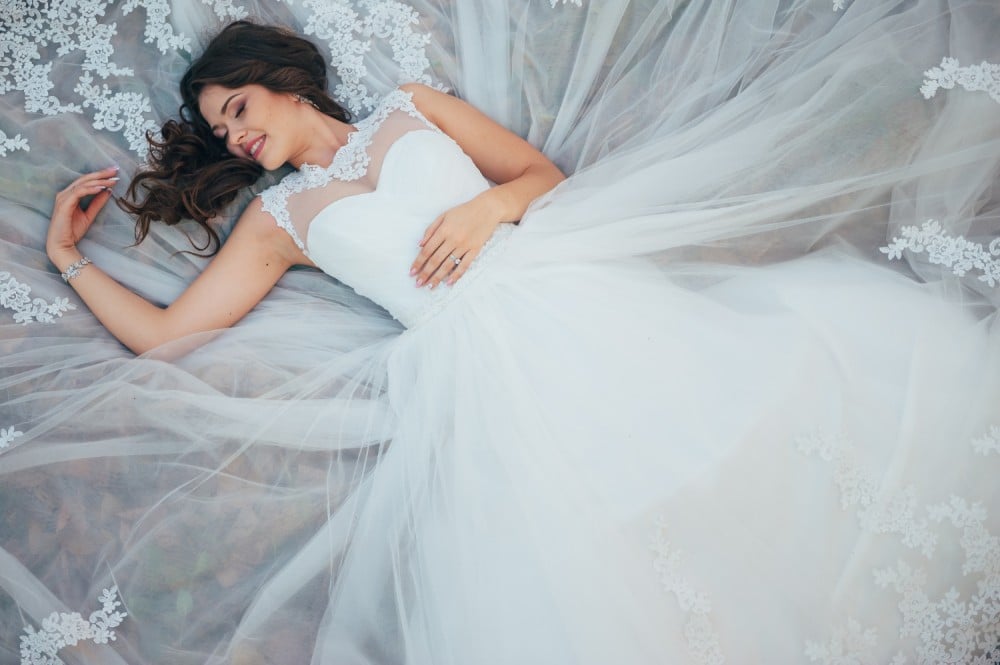 How to bustle a tulle wedding dress ?05/21/2024Posted in: Wedding Fashion & StyleRead more
How to bustle a tulle wedding dress ?05/21/2024Posted in: Wedding Fashion & StyleRead more Planning Your Honeymoon Tips for an Unforgettable Trip05/20/2024Posted in: Wedding PreparationsRead more
Planning Your Honeymoon Tips for an Unforgettable Trip05/20/2024Posted in: Wedding PreparationsRead more The Dos and Donts of Wedding Guest Etiquette05/16/2024Posted in: Wedding Traditions & EtiquetteRead more
The Dos and Donts of Wedding Guest Etiquette05/16/2024Posted in: Wedding Traditions & EtiquetteRead more The Importance of PreWedding Counseling What You Should Know05/13/2024Posted in: Wedding PreparationsRead more
The Importance of PreWedding Counseling What You Should Know05/13/2024Posted in: Wedding PreparationsRead more Can I wear beige to a wedding ?11/14/2023Posted in: Wedding Fashion & StyleOne of the most common questions when it comes to wedding guest attire is whether it's appropriate to wear beige to a...Read more
Can I wear beige to a wedding ?11/14/2023Posted in: Wedding Fashion & StyleOne of the most common questions when it comes to wedding guest attire is whether it's appropriate to wear beige to a...Read more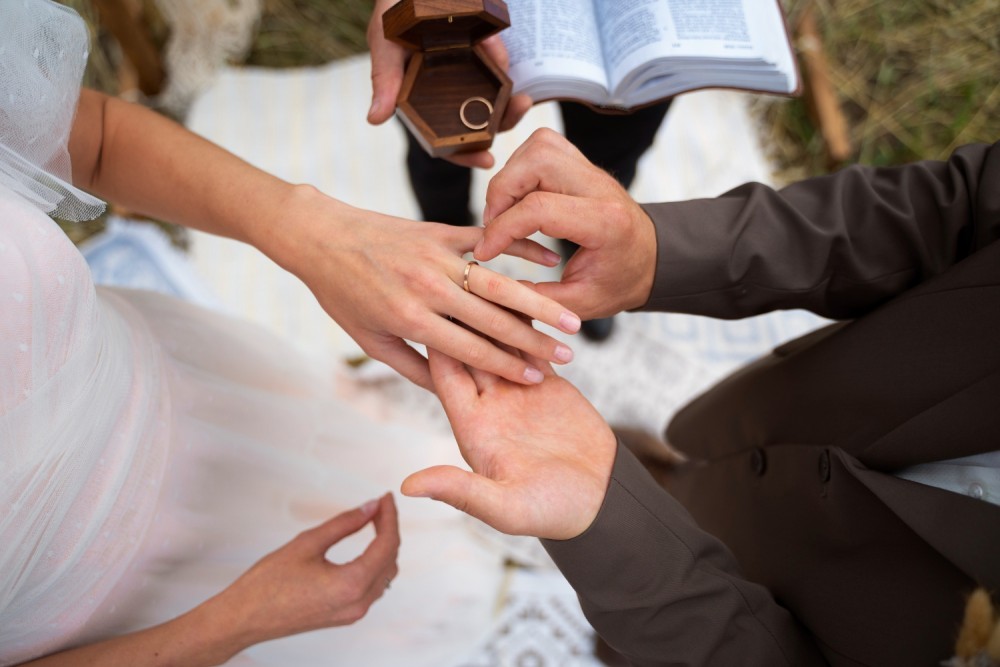 Do Jehovah Witnesses celebrate weddings ?02/29/2024Posted in: Wedding Traditions & EtiquetteJehovah’s Witnesses are known for their distinctive beliefs and practices, but what about weddings? In this...Read more
Do Jehovah Witnesses celebrate weddings ?02/29/2024Posted in: Wedding Traditions & EtiquetteJehovah’s Witnesses are known for their distinctive beliefs and practices, but what about weddings? In this...Read more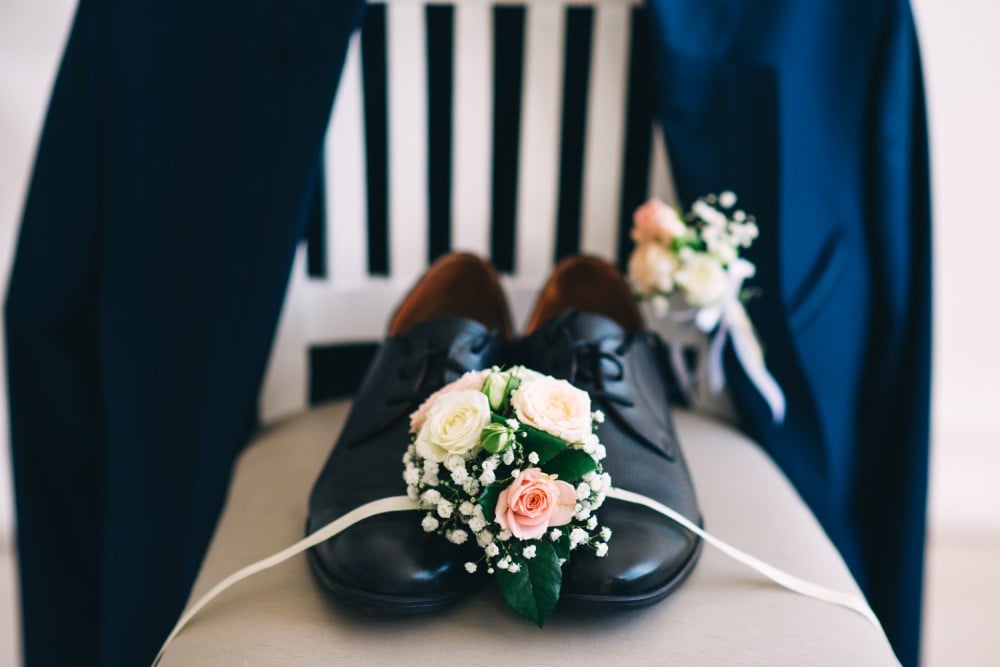 What color shoes with navy dress for Wedding ?08/20/2023Posted in: Wedding Fashion & StyleMatching shoe color with navy dress When teaming shoe color with a navy dress, it's essential to decide on a hue...Read more
What color shoes with navy dress for Wedding ?08/20/2023Posted in: Wedding Fashion & StyleMatching shoe color with navy dress When teaming shoe color with a navy dress, it's essential to decide on a hue...Read more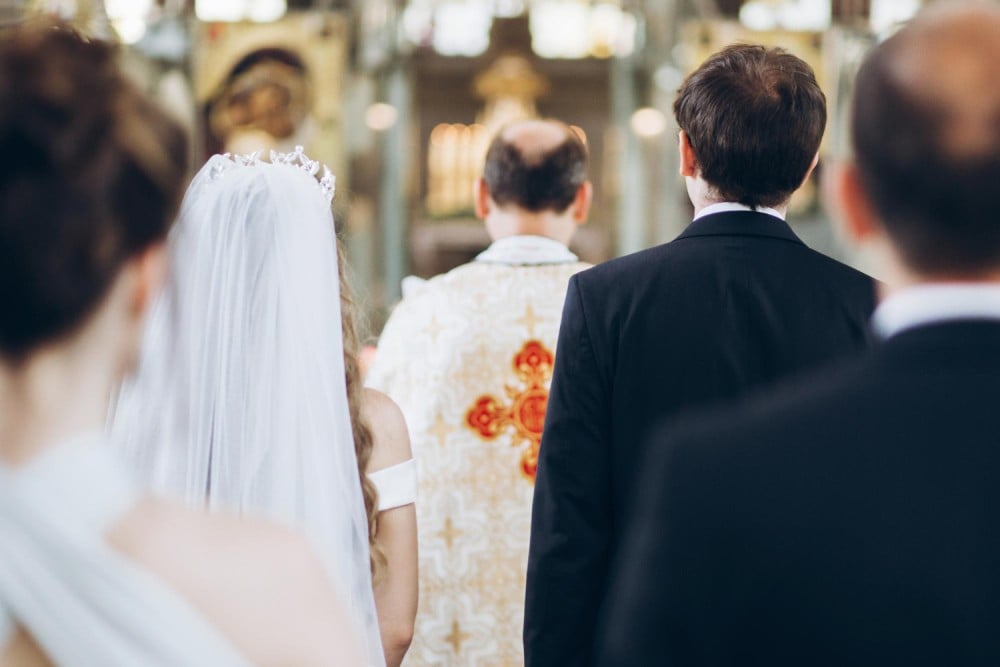 What to wear to a Church Wedding ?09/04/2023Posted in: Wedding Fashion & StyleAre you attending a church wedding and unsure about the dress code? Our latest article provides a deep dive into the...Read more
What to wear to a Church Wedding ?09/04/2023Posted in: Wedding Fashion & StyleAre you attending a church wedding and unsure about the dress code? Our latest article provides a deep dive into the...Read more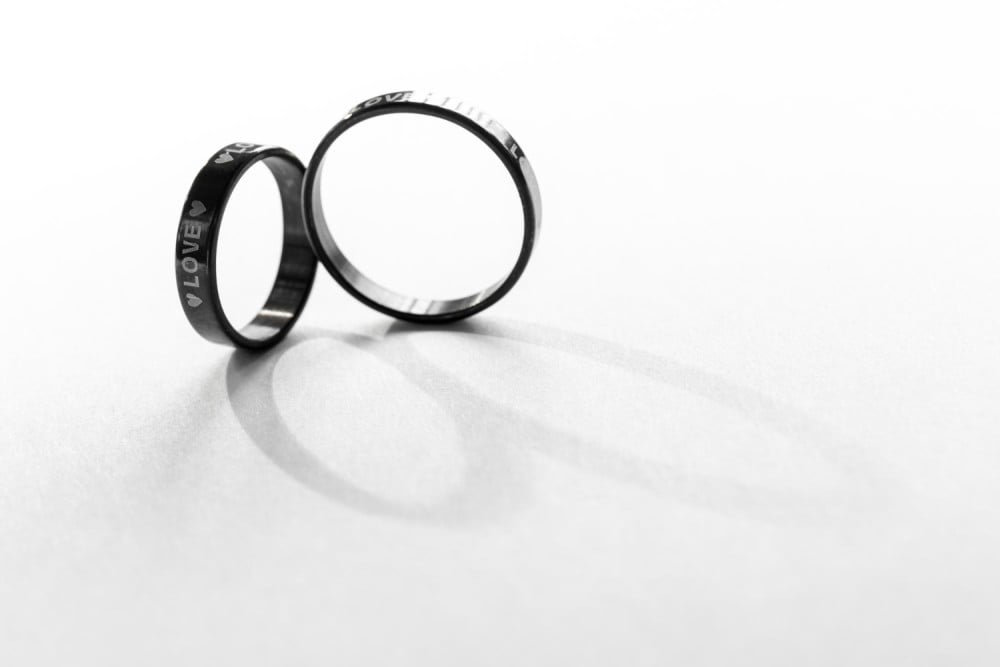 What does a black wedding ring mean ?06/12/2023Posted in: Miscellaneous Wedding AspectsWedding rings are a traditional symbol of love and commitment, but their style and design can vary greatly. In recent...Read more
What does a black wedding ring mean ?06/12/2023Posted in: Miscellaneous Wedding AspectsWedding rings are a traditional symbol of love and commitment, but their style and design can vary greatly. In recent...Read more How to become a wedding officiant in tennessee ?06/27/2024Looking to become a wedding officiant in Tennessee but not sure where to start? This comprehensive guide will walk...Read more
How to become a wedding officiant in tennessee ?06/27/2024Looking to become a wedding officiant in Tennessee but not sure where to start? This comprehensive guide will walk...Read more How to bustle a tulle wedding dress ?05/21/2024Posted in: Wedding Fashion & StyleAre you a bride-to-be with a tulle wedding dress and wondering how to bustle it for the big day? Look no further!...Read more
How to bustle a tulle wedding dress ?05/21/2024Posted in: Wedding Fashion & StyleAre you a bride-to-be with a tulle wedding dress and wondering how to bustle it for the big day? Look no further!...Read more Planning Your Honeymoon Tips for an Unforgettable Trip05/20/2024Posted in: Wedding PreparationsPlanning your honeymoon is an exciting and important step in beginning your life together as a married couple. From...Read more
Planning Your Honeymoon Tips for an Unforgettable Trip05/20/2024Posted in: Wedding PreparationsPlanning your honeymoon is an exciting and important step in beginning your life together as a married couple. From...Read more The Dos and Donts of Wedding Guest Etiquette05/16/2024Posted in: Wedding Traditions & EtiquettePlanning to attend a wedding soon? Make sure you brush up on your wedding guest etiquette to ensure you have a great...Read more
The Dos and Donts of Wedding Guest Etiquette05/16/2024Posted in: Wedding Traditions & EtiquettePlanning to attend a wedding soon? Make sure you brush up on your wedding guest etiquette to ensure you have a great...Read more The Importance of PreWedding Counseling What You Should Know05/13/2024Posted in: Wedding PreparationsAre you and your partner considering pre-marriage counseling but not sure what to expect? This article is here to...Read more
The Importance of PreWedding Counseling What You Should Know05/13/2024Posted in: Wedding PreparationsAre you and your partner considering pre-marriage counseling but not sure what to expect? This article is here to...Read more








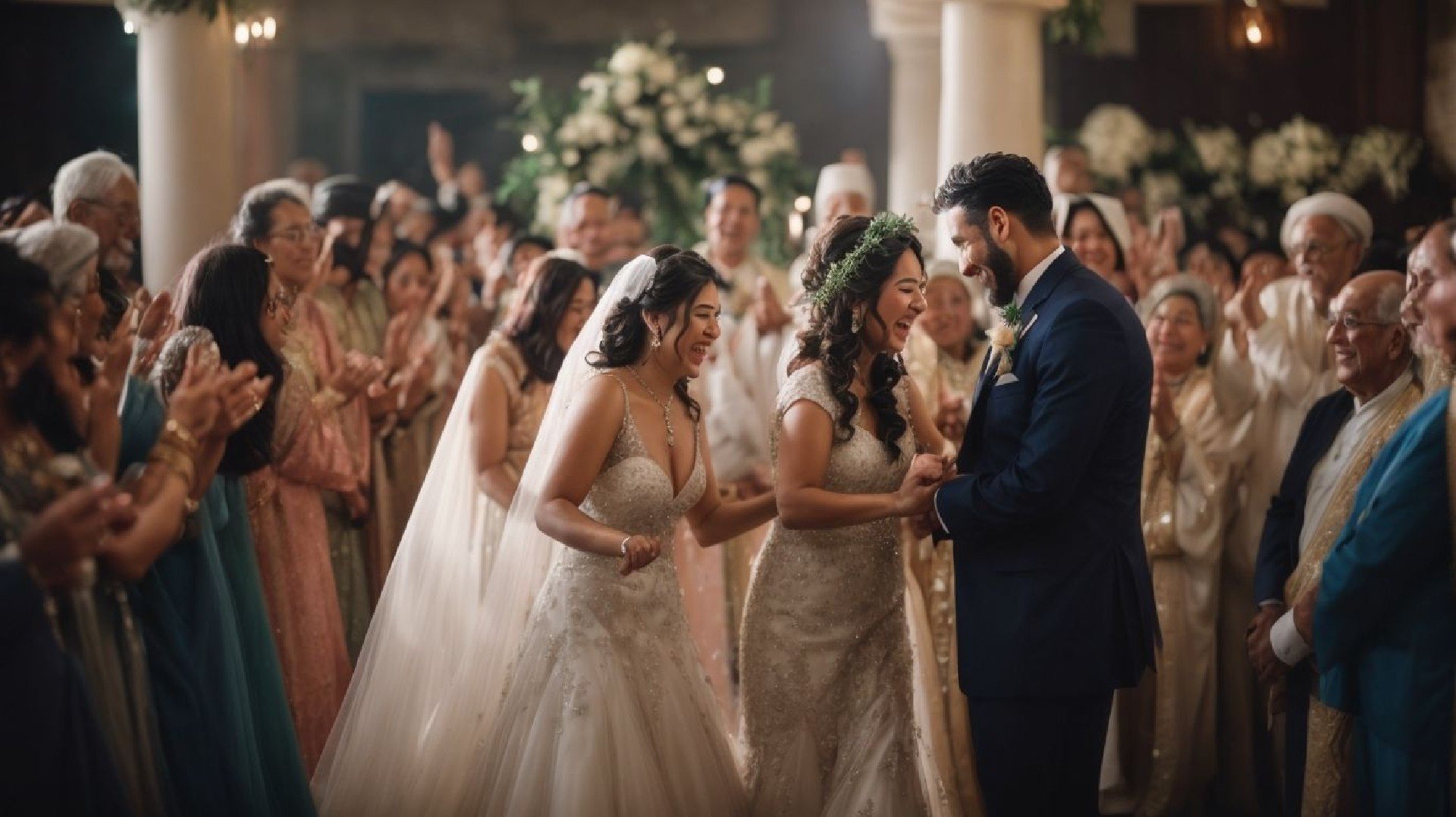
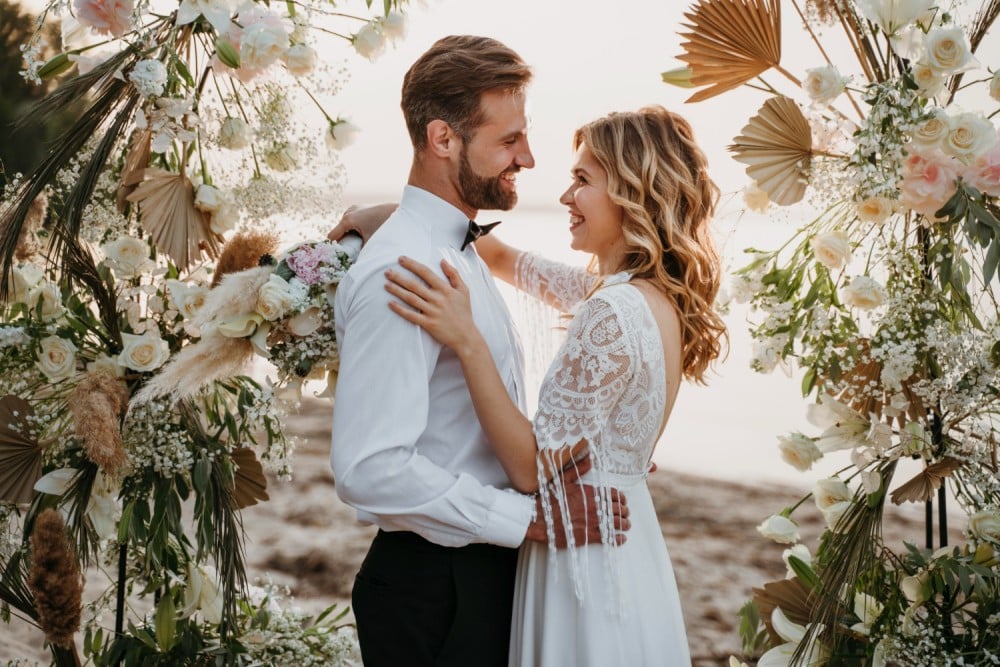
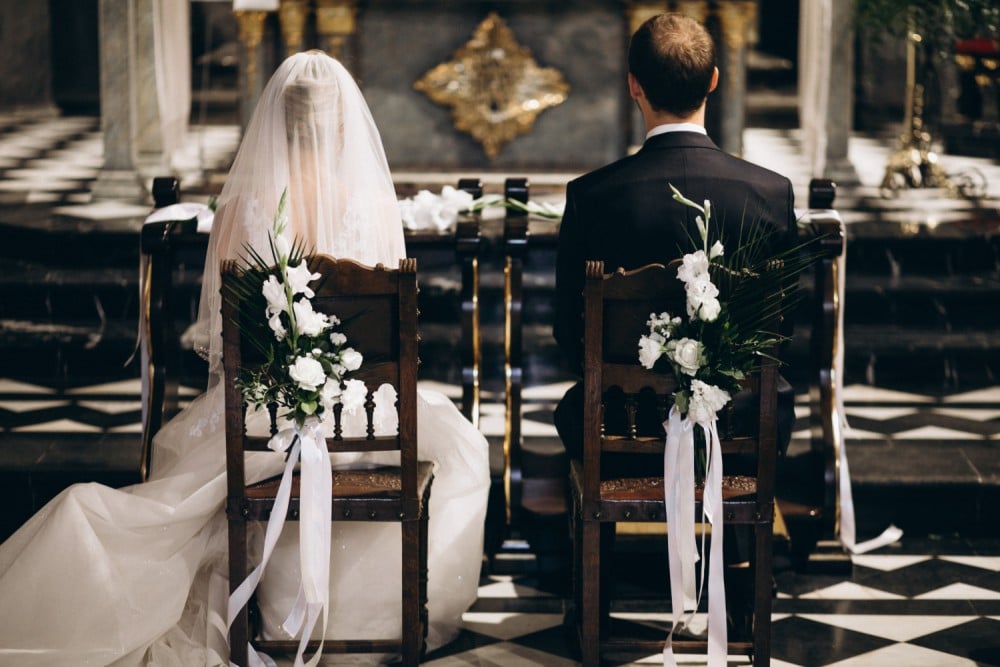
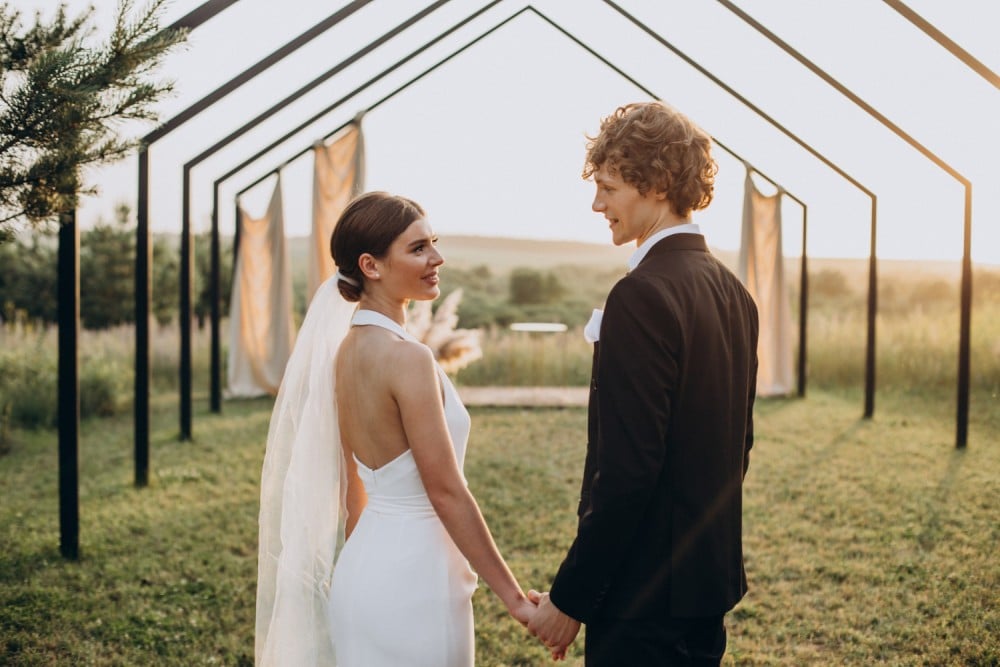
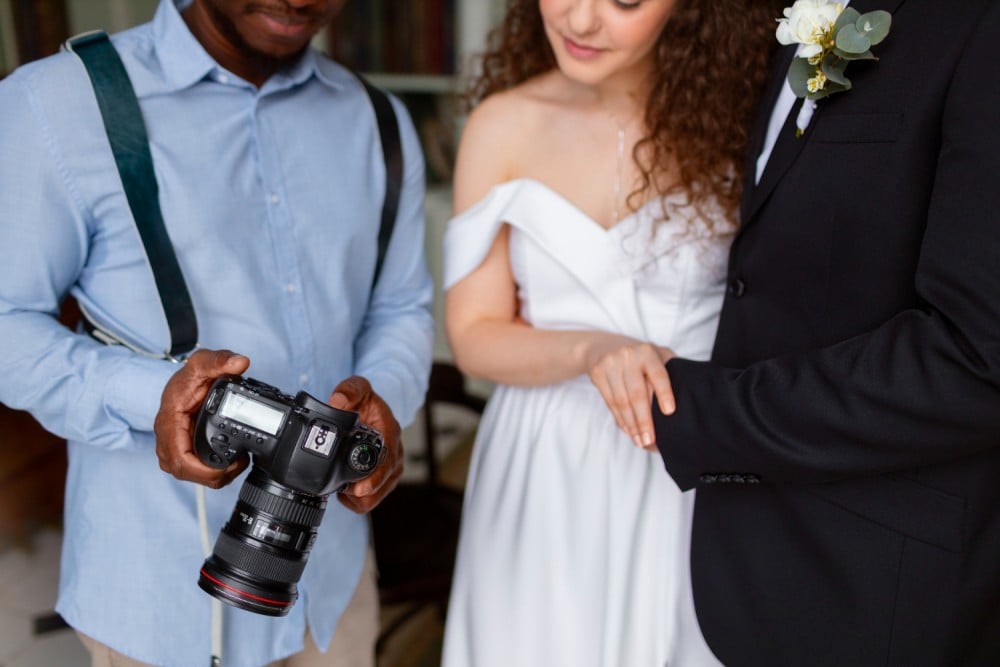

Top authors